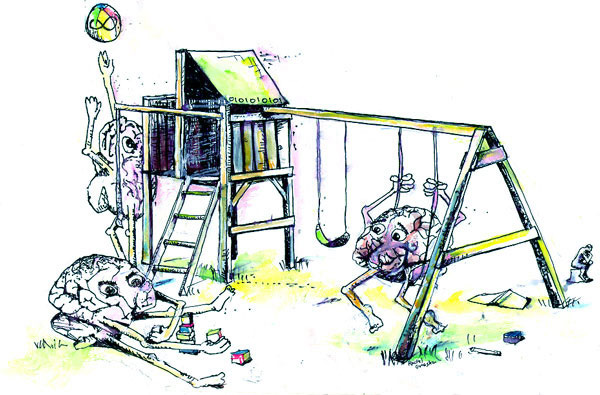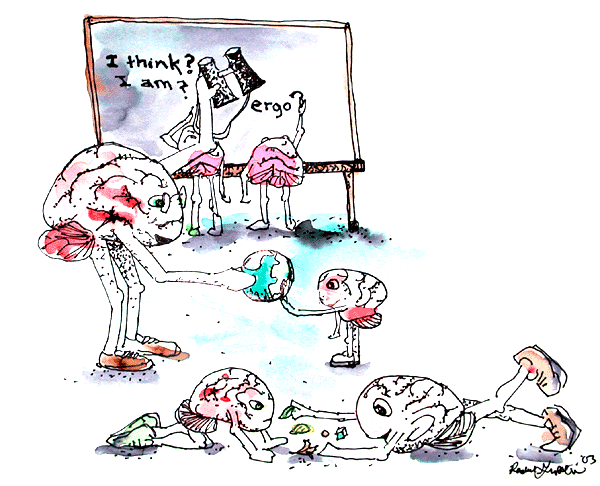 |
|
Home
| Calendar | About
| Getting Involved
| Groups | Initiatives | Bryn Mawr Home | Serendip Home | |||||
Exploring Science as Open-Ended Transactional Inquiry:
|
| This working group is open to everyone interested in elementary science education, science education, and education generally. See schedule for meeting details. For further information contact Alice Lesnick or Paul Grobstein. |

|

|

|
| Images by Rachel Grobstein |
The development of science education curricula is frequently dominated by concerns about content mastery, and preparation for more sophisticated content mastery.
The content dominated approach to science education actually significantly misrepresents the activity of science itself, which is primarily driven not by finding answers but by treating all existing answers with skepticism and using them to motivate new inquiries and new ways of thinking about the world and one's place in it.
- While changes are needed at all levels of the educational system, elementary science education creates a pattern of expectations that affects all subsequent levels and so needs special attention.
- Contemporary understandings of the brain are directly relevant to thinking about how to facilitate the development of inquiry skills
- There is a need to extend beyond constructivist and inquiry-based approaches by adding an explicit commitment to open-ended inquiry involving active exchange among students and between students and teachers.
- The purpose of knowledge is to drive curiosity; what people know and what they can ask -- and be -- are importantly linked.
- Ongoing access to science learning may be enhanced by educational experiences that fundamentally include learners in the process of scientific discovery and discourse.
- Science as "open-ended transactional inquiry" can meaningfully and valuably influence other areas of the curriculum as well.
Home
| Calendar | About
| Getting Involved
| Groups | Initiatives | Bryn Mawr Home | Serendip Home
Director: Liz McCormack -
emccorma@brynmawr.edu
| Faculty Steering Committee
| Secretary: Lisa Kolonay
© 1994-
, by Center for Science in Society, Bryn Mawr College and Serendip
Last Modified:
Wednesday, 02-May-2018 10:51:19 CDT